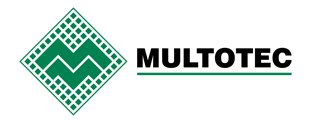

Premier African Minerals completes conceptual mine plan for RHA mine
LSE-listed multi-commodity miner Premier African Minerals has completed a new underground conceptual mine plan for its RHA tungsten project in Zimbabwe.
The objective of the new conceptual mine plan is to assess the potential impact of returning RHA to production and assess whether RHA can generate a return on Premier’s investment, to date, in surface infrastructure, plant and equipment at minimal additional capital costs, based on using just the existing vertical access shaft.
The previous study had included the construction of a new high-capacity decline shaft.
The conceptual mine plan has been based on a revised RHA underground mineral resource estimate relating to the parts of the orebody included within the conceptual mine plan.
The conceptual mine plan assesses an underground production rate of 6 000 t a month, with a projected life-of-mine of ten years and indicates a peak funding requirement of $2.5-million and a payback within 16 months.
The mine plan is being drawn up with technical assistance from independent South African mine planning consultants Bara Consulting, geological consultants Shango Solutions, and metallurgy and process engineer Multotec Process Equipment.
As Premier has resolved not to commit further funding to RHA, any new funding would need to be provided by a third party, being either the National Indigenisation and Economic Empowerment Fund, or another party.
Multotec, a manufacturer of concentration systems including spirals and cyclones, which supplied the spiral systems already installed at RHA, conducted test work on a bulk wolframite ore sample from RHA to reassess and optimise the spiral recoveries and water management at the plant.
To date, Bara Consulting has reviewed Multotec’s test results and has proposed, in consultation with Premier, certain changes to the flow sheet.
Further, Premier has internally completed an updated economic assessment based on Bara Consulting’s mine plan and recommended flowsheet changes and Multotec’s test results, to analyse the illustrative costs and returns of a potential return to production based on underground mineral resources only.
ZULU PROJECT
Meanwhile, Premier reports that a drilling programme has commenced at its Zimbabwe-based Zulu lithium and tantalum project.
Despite delays caused by rising Covid-19 infections in Zimbabwe and government action in controlling the spread of the virus, Premier says it remains on track with its plans to prepare Zulu’s definitive feasibility study (DFS) in line with previously reported timelines.
Premier CEO George Roach says surging Covid-19 infections in the Southern African Development Community region is not helping at Zulu, where travel and other restrictions are impacting the drilling programme. “Despite this, the rigs continue to operate and our laboratory equipment is now only awaiting import clearance to Zimbabwe.”
He adds that the drilling is just one component of the DFS.
“In the background, important other work is underway, including that associated with environment, water management, tailings management, geotechnical assessment, preparation for additional metallurgical studies, logistics route planning and cost estimates.”
Thus far, Premier still expects to complete the study within the anticipated timelines and a variation to that effect will be communicated if necessary.
However, in the light of surging spodumene concentrate prices, Premier has also commissioned a review of the Zulu scoping study, with the intention of both better understanding the overall potential value of Zulu and to assess potentially reversing the current impairment of this project.


